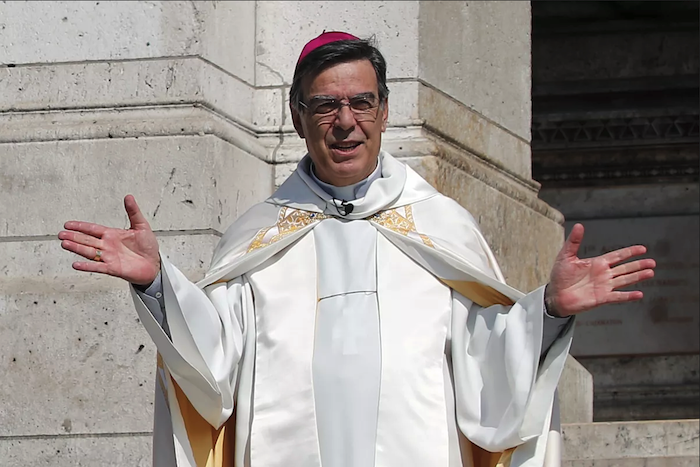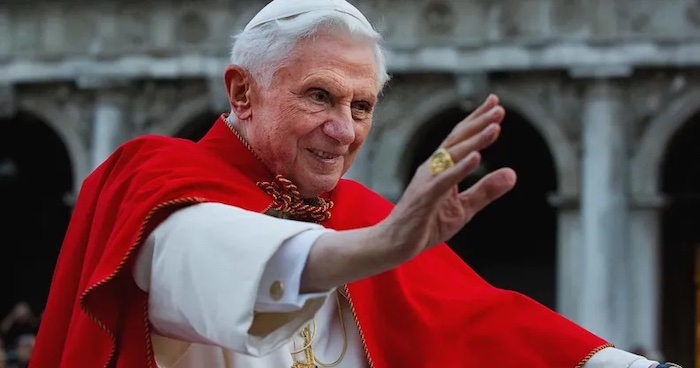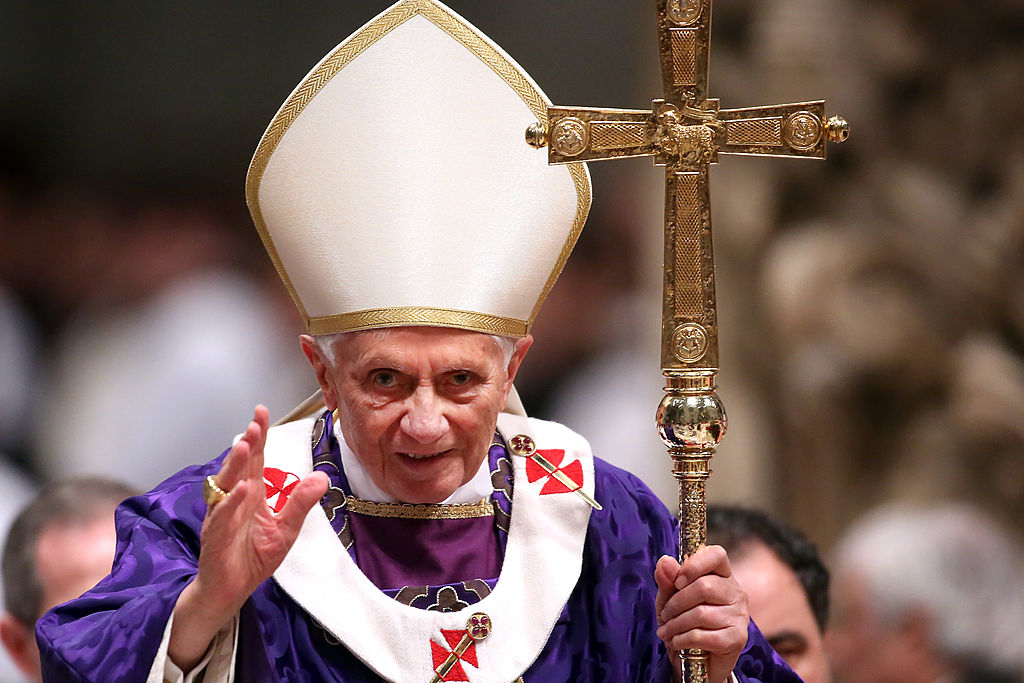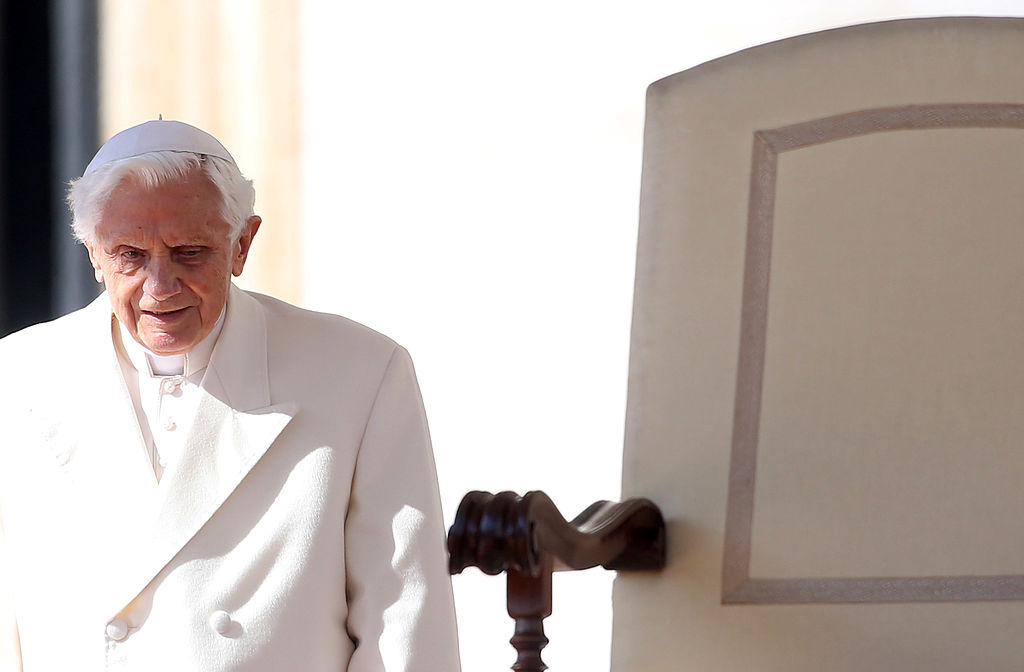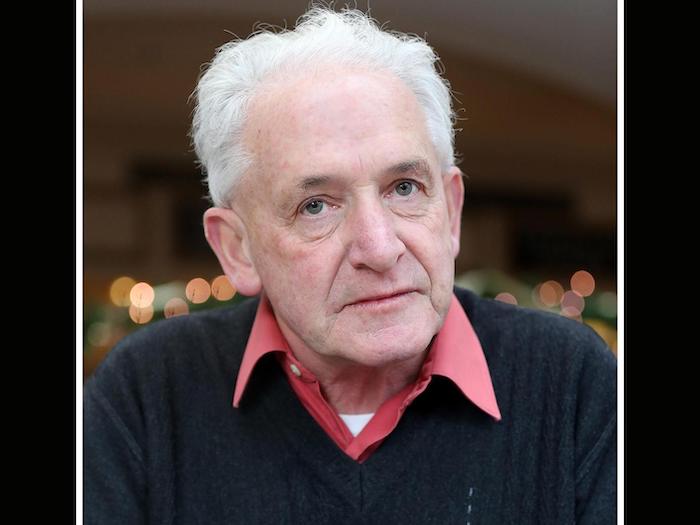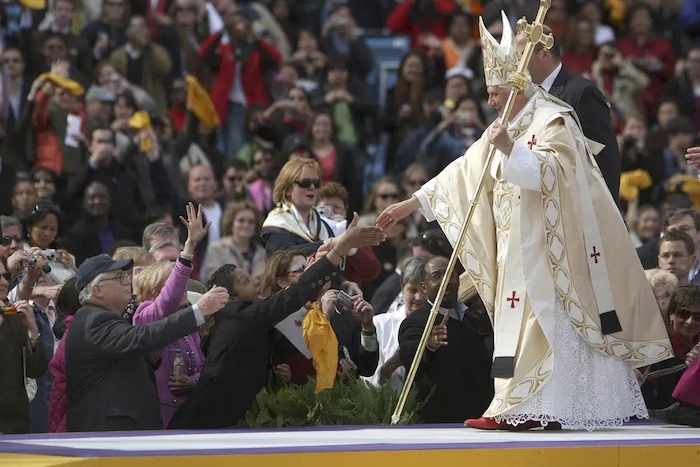
By DAVID CRARY
In the United States, admirers of Pope Emeritus Benedict XVI remembered him warmly for his theological prowess and devotion to traditional doctrine. However, some U.S. Catholics, on learning of his death Saturday, recalled him as an obstacle to progress in combating clergy sex abuse and expanding the role of women in the church.
Professor Kathleen Sprows Cummings, director of the University of Notre Dame’s Cushwa Center for the Study of American Catholicism, depicted Benedict as “a man of unwavering faith, deep conviction and towering intellect,” yet added that he left “a complicated legacy.”
She noted that last February, following a report that implicated him in the cover-up of sexual abuse during the years he served as Archbishop of Munich, Benedict “acknowledged his failure to act decisively at times in confronting sexual abusers.”
Steven Millies, a professor of public theology at Catholic Theological Union in Chicago, noted that Benedict – before becoming pope – had a lead role in enforcing church discipline at a time when the sex-abuse crisis was making headlines in the U.S. two decades ago.
“When he was elected to succeed John Paul II as pope in 2005, Benedict XVI was the person who was most knowledgeable about clergy sexual abuse.” Millies said via email. “Yet, the crisis continued to fester throughout Benedict’s papacy past his resignation in 2013 and even today.”
Millies suggested that Benedict’s most important legacy was his resignation, arising from “his recognition that he could not fix the abuse crisis or accomplish much else in the face of the deeply entrenched power of the Vatican’s centralized bureaucracy.”
Archbishop Timothy Broglio, who heads the Archdiocese for the Military Services, USA, and is president of the U.S. Conference of Catholic Bishops, praised Benedict as “a superb theologian” and recalled how the announcement of his resignation “shocked the world.”
“He recognized the great demands made of him as the chief shepherd of the Universal Church of a billion Catholics worldwide, and his physical limitations for such a monumental task,” Broglio said in a statement. “Even in retirement, retreating to live out a life in quiet prayer and study, he continued to teach us how to be a true disciple of Christ.”
Cardinal Timothy Dolan, who was appointed archbishop of New York and nominated as a cardinal by Benedict, praised the pope emeritus as a “erudite, wise, and holy man, who spoke the truth with love.”
Dolan held a special Mass for Benedict at St. Patrick’s Cathedral; its bells tolled 95 times before the Mass — reflecting Benedict’s age when he died.
President Joe Biden — a church-going Catholic who differs with church teaching on abortion and some other social issues — issued a statement evoking a meeting with Benedict at the Vatican in 2011. Biden recalled Benedict’s “generosity and welcome as well as our meaningful conversation.”
“He will be remembered as a renowned theologian, with a lifetime of devotion to the Church, guided by his principles and faith,” Biden added. “May his focus on the ministry of charity continue to be an inspiration to us all.”
Monsignor Kevin Irwin, dean emeritus at Catholic University of America, called Benedict a “theology professor extraordinaire… a clear thinker who was a quiet contributor to the church’s continuity after Pope John Paul II.”
Irwin said Benedict’s resignation left him stunned.
“But, in the end it was about understanding he was overwhelmed and letting him go,” Irwin said.
Monsignor Stephen Doktorczyk, vicar general for the Diocese of Orange in Southern California, remembered Benedict as a gracious leader who had the ability to build bridges and foster reconciliation.
“There was this unfair perception that he was there to cut people off at the knees,” said Doktorczyk, who served for five years — from September 2011 to December 2016 – in the Congregation for the Doctrine of the Faith, the Vatican office responsible for processing clergy sex abuse complaints. “He tried to be a peacemaker. When there was a way to reconcile, he tried to look outside the box.”
Others were more critical, including Kate McElwee, executive director of the U.S.-based Women’s Ordination Conference, which seeks to enable women to be ordained as Catholic priests.
“For many Catholics, Pope Benedict’s papacy is a chapter of our church’s history that we are still healing from,” McElwee said. Her statement asserted that Benedict, as head of the Vatican’s doctrine office and as pope, “orchestrated a rigid campaign of theological suppression on the question of women’s ordination, creating a culture of fear and pain within the church.”
Also offering a harsh judgment was David Clohessy, a longtime leader of the Survivors Network of those Abused by Priests.
“In more than 30 years as a mighty Vatican bureaucrat – nearly 10 of them as the world’s top Catholic figure – Benedict enabled countless child sex crimes and cover-ups to continue by virtually refusing to publicly expose even one child molesting cleric or a complicit church official,” Clohessy said via email.
“With his extensive power and bully pulpit, he could have prevented hundreds or perhaps thousands of kids from being sexually assaulted. But he didn’t. Instead, he chose, time and time again, to side with ordained clergy over vulnerable children.”
The Survivors Network’s leadership, in a statement, said honoring Benedict now “is not only wrong, it is shameful.:
“Benedict was more concerned about the church’s deteriorating image and financial flow to the hierarchy versus grasping the concept of true apologies followed by true amends to victims of abuse,” the statement said,
The leader of a Maryland-based group that advocates for LGBTQ Catholics, Francis DeBernardo of New Ways Ministry, noted that Benedict — prior to his papacy — helped shape a document that called homosexual orientation as ”an objective disorder” and a Catechism describing sexual activity between people of the same gender as “acts of grave depravity.”
“Those documents caused — and still cause — grave pastoral harm to many LGBTQ+ people,” DeBernardo said,.
Complete Article ↪HERE↩!
